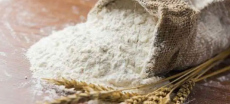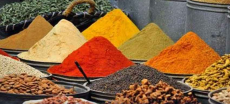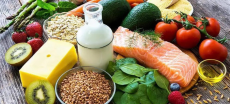[vc_row][vc_column][vc_column_text dp_text_size=”size-4″]As the government proposes implementing an 18% sales tax on bottled milk in the 2018 budget, consumers and the food industry in Pakistan may have to pay higher milk prices. This action is being taken at a time when the food business is already having trouble as a result of high taxes on juice products.
The Federal Board of Revenue (FBR), according to sources who spoke to The Express Tribune, has recommended this tax reform in an effort to start collecting more than Rs30 billion in new taxes in the fiscal year 2023–2024.
Given the nation’s historically high inflation, Finance Minister Ishaq Dar has expressed concern about the effect on consumers. The food business is still recovering from the introduction of a 10% federal excise duty just five months ago, so the implementation of such a tax would be a second blow to it.
Businesses and farmers have suffered because of this tax, which has decreased demand for goods like mangoes. It’s interesting to note that his government’s taxation policies were harming Pakistani farmers and the food industry while Prime Minister Shehbaz Sharif was negotiating with the Turkish President over the import of mangoes.
According to sources, the FBR’s proposal would eliminate the zero-rating facility for the dairy industry. At the moment, milk producers are allowed to request refunds for the inputs they buy. An additional 18% tax would add Rs46 to the price of packaged milk, which is normally sold for roughly Rs260 per litre.
Read More: Why cultivated meat is still so hard to find?
The finance minister expressed concerns about the potential societal effects of taxing milk during discussions on eliminating the zero-rating capability, according to the sources.
He also thought about the effects of charging milkmen an additional 18% sales tax on loose milk, which would result in higher consumer pricing. Sources claim that the government is unlikely to support the FBR’s suggestion in light of these observations.
May saw the highest inflation rate on record, standing at 38%. Food taxes could be expensive for the government, especially during an election year. To encourage its expansion, the dairy industry was given a zero rating in the budget for 2021–2022. Taxing these goods would make them more expensive for consumers and would decrease demand, which would have an effect on dairy farmers and the sector as a whole.
Pakistan has one of the highest rates of malnutrition in the world, according to the World Food Programme, with an estimated 43.7% of children under the age of five having stunted development, 17% having wasting, and 31.5% having an underweight condition. Malnutrition is a major problem in Pakistan, especially in rural areas where access to nutrient-rich food is scarce.
The 10% federal excise charge levied on fruit juices is being opposed by the food industry as well. The packaged juice market has seen a sharp fall in sales since its installation in February. According to industry sources, 100,000 tonnes of mangoes and other fruits were obtained from local farmers in 2022 for pulp production. According to a significant market player, this number has now dropped by more than 50%, costing farmers money.
Due to the fall in demand from juice manufacturers following the application of the 10% federal excise charge, fruit pulping facilities in Punjab run the risk of closing down or having their production capacity curtailed. Since the release of the Supplementary Budget in February, sales and volume have drastically decreased. The juice sector, which has a yearly revenue of about Rs60 billion and employs more than 5,000 people, has been negatively impacted. Market participants claim that since the implementation of the charge, investments and plans for future growth have stagnated.
The official packed juice sector, which generates about Rs 16 billion in tax annually, is currently dealing with serious difficulties. With an investment of Rs5 billion, new Green Field Pulp Plants were recently built in Sargodha, Jhang, and Multan. These facilities turn fruit into pulp, generating excess money and skilled industrial employment possibilities while also enhancing the rural economy by minimising fruit waste.
Despite being a significant producer of high-quality fruits, some of which are exported, Pakistan’s fruit value chain already struggles from a lack of adequate storage facilities. In order to revitalise the business and promote medium-sized fruit growers, players in the value chain are pleading with the government to remove the federal excise levy on packed juice.[/vc_column_text][/vc_column][/vc_row]











